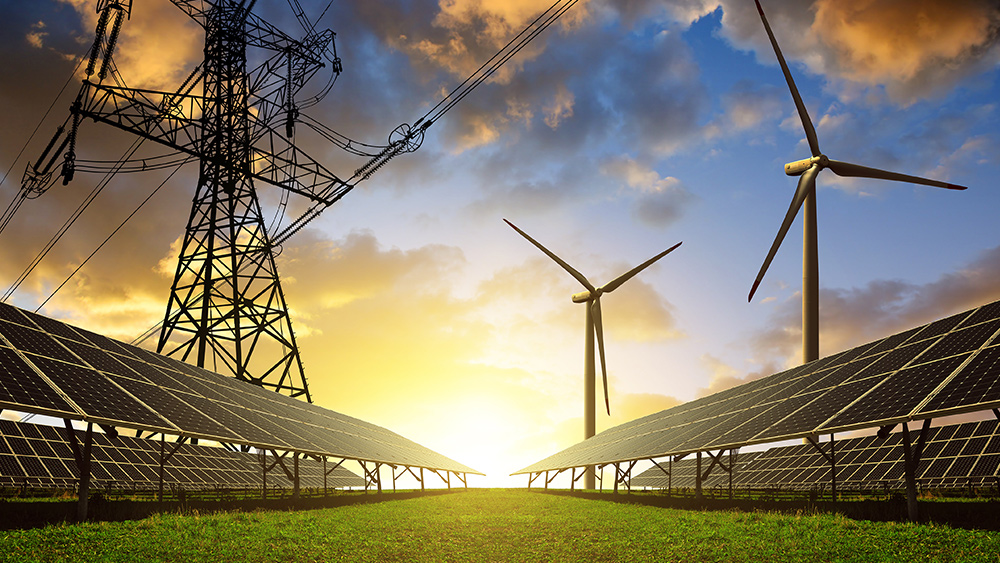Big Tech demand for cobalt drives SLAVE MINES in the Congo
01/31/2023 / By Arsenio Toledo

Images taken from inside a cobalt mine in the Democratic Republic of the Congo (DRC) in Africa show the terrible working conditions that help fuel the creations showcased by Big Tech companies like Apple and Tesla.
Roughly 90 percent of the world’s cobalt supply is mined in the DRC. Cobalt is one of the chemical elements found in almost every major electronics produced by the world’s tech giants, especially ones that use lithium-powered batteries. Smaller gadgets like smartphones and laptops require only a few grams of cobalt to function. Larger electronics like electric vehicles (EVs) require at least 10 kilograms (22 pounds).
Big Tech companies like Apple, Microsoft, Google and Tesla repeatedly claim that they hold their cobalt suppliers to the highest standards and that they only trade with smelters and refiners who adhere to their strict codes of conduct. (Related: Lithium batteries used in EVs and other “green” technology are anything but clean.)
But the photos, taken by author Siddharth Kara, tell a different story.
His photos come from the Shabara mine, an open-pit cobalt mine in the southern DRC province of Lualaba. In this mine, hundreds of thousands of Congolese miners are exposed to toxic chemicals every day due to the fact that this is an “artisanal” mine, where all the mining is done by hand or with small tools instead of large industrial equipment that can reduce health risks.
Kara noted witnessing workers, including children, laboring in the mine for $2 a day. The work includes men hauling hundreds of pounds of rocks and minerals every day, children covered in chemicals smashing open rocks and exhausted women, including new mothers with their babies strapped to them, sifting through nets of rocks to find cobalt.
“These are hundreds of thousands of the poorest people on the planet” mining for cobalt, said Kara. “This is blood diamonds multiplied by a thousand – diamonds aren’t toxic. And you buy a diamond once, maybe twice, in your life, whereas Western society can’t function for more than 24 hours without devices that rely on cobalt.”
Human rights issue in Congo cobalt mines a growing human rights concern
Kara, an expert on modern-day human rights issues and an adjunct lecturer at the Carr Center for Human Rights Policy at the Harvard Kennedy School, pointed out how the lithium batteries used in today’s electronics come with a heavy price.
“The moral clock has been dialed back to colonial times,” he said in an email to the Daily Mail. “They’re doing it for $2 a day and for them, it’s the difference between whether or not they eat that day, so they don’t have the option of saying no.”
Kara pointed out how these appalling working conditions are being perpetrated by tech giants like Apple, Microsoft and Tesla turning a blind eye to the exploitation of workers due to their desire to acquire cheap minerals for their products.
Furthermore, the sudden demand for supposedly “green” technologies are having a catastrophic effect in the DRC, according to Kara. “It’s supposed to be a green choice, getting an EV,” he said. “Well, it’s not green for everybody.”
Kara urged American Big Tech companies that rely on a steady stream of cobalt coming into their factories to change course and reevaluate their relationship with their current cobalt suppliers who put profit over people.
“[Companies] initiate [the] demand for cobalt. It starts with them – it is their responsibility,” said Kara. “The supply chain only exists because of demand. They all say they source it ethically, they will all say supply chains are ethical, but then you go to the Congo and you see it’s not true.”
Watch this clip from AFP of the Shabara mine in the DRC showing the enormous human toil needed to produce the world’s clean energy technology.
This video is from the GalacticStorm channel on Brighteon.com.
More related stories:
Sources include:
Submit a correction >>
Tagged Under:
Apple, Big Tech, cobalt, cobalt mining, Congo, Democratic Republic of the Congo, electronics, evil, future tech, Google, human rights, humanitarian, metals, Microsoft, Shabara mine, slavery, tech giants, technocrats, tesla, traitors, working conditions
This article may contain statements that reflect the opinion of the author
RECENT NEWS & ARTICLES
COPYRIGHT © 2017 FUTURETECH.NEWS
All content posted on this site is protected under Free Speech. FutureTech.news is not responsible for content written by contributing authors. The information on this site is provided for educational and entertainment purposes only. It is not intended as a substitute for professional advice of any kind. FutureTech.news assumes no responsibility for the use or misuse of this material. All trademarks, registered trademarks and service marks mentioned on this site are the property of their respective owners.



















